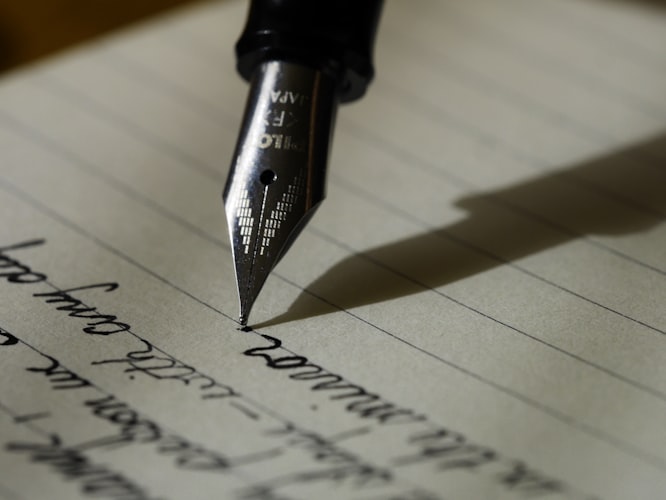
"Reading makes a man complete, conversation makes him prepared, and writing makes him precise"
These words by the famous English philosopher, writer and essayist Francis Bacon could not be more true. Writing, conversation and reading are the basis for creating a complete person in all aspects of self-awareness: Social, mental, emotional, spiritual and physical.
A life based on these three essential pillars results in a fuller and happier life, helps you to cope better with the adversities of life and to be a better person every day.
In this article I will specifically address the many benefits of the third pillar of this essential trilogy: writing.
Writing greatly improves your intelligence
Writing works on various aspects of your intelligence. Depending on what you write, you will not only greatly increase your vocabulary, but will also greatly improve your handwriting and creativity.
Writing also improves your writing skills. This is no wonder why writing gives you the chance to express yourself better. The more you write, the more you will be able to organize your thoughts well in order to express yourself correctly in your daily life. In addition, you will be able to make associations of ideas on subjects that most people can't.
Writing strengthens your mental and emotional health
Many of us deal with severe emotional pain resulting from traumas that we have had in the past, such as physical or sexual abuse, love disasters or the death of a deceased loved one.
If we do not constantly filter these feelings in a short time, we will become bitter, sad and depressed people. Therefore, learning to control our negative emotions is very important if we want to have stronger mental and emotional health.
One way of doing this mental cleansing is through writing. When we write about our feelings and concerns, we kind of "dump" on paper the things that would harm our mental health. It is as if we leave our worries on paper and feel lighter. That way we clear our mind, which helps us to deal better with depression or anxiety.
It is no wonder that the habit of writing is highly recommended by therapists and psychologists around the world, as it helps to combat these emotional pains.
If you are reluctant to talk to someone about your emotional pain, a good alternative may be to put your feelings down on the paper.
Helps you organize your thoughts better
Even if you don't suffer from depression or some kind of emotional problem, you can still benefit a lot from writing.
Life today is a frantic rush. Many agree that we live in a time when people have never felt so overwhelmed mentally and emotionally before.
Covid-19, global warming, nuclear tension, pressure on the family, pressure at school, pressure at work ... Today's world puts constant pressure on all people of all age groups, ethnicities, races or social standing.
Because of this, people feel mentally overwhelmed, which can lead to mental exhaustion. No wonder people who apparently seemed healthy out of nowhere prefer to take their own lives.
Even a mere student has so many personal tasks to do that he/she feels extremely overwhelmed. This generates conflicting thoughts and ends up later saying or doing things that they'll later regret.
But putting everything on paper will help you to avoid mental exhaustion, as it will help you organize your thoughts better. It is a way of reflecting on your own life, setting new goals and reaching a solution to your problems without feeling too overwhelmed.
Writing about problems and feelings can help you to focus on real issues and to look at them objectively. In turn, you will feel happier and more positive.
How do I get started?
Find a quiet place, an agenda or notebook you like and a pen. Yes, that's it. Simple isn't it?
What? You think you are not that good with words, that you are too young or that you don't have good handwriting?
Don't worry about that. You don't need to have good handwriting, be good with words or be young to write. Even if you don't have the money to buy a pen and paper, you can start by writing digitally on your phone, computer or other electronic device.
"But what am I going to write about Oswald?" About anything that interests you. The content is not important. The most important thing is that you express yourself from the bottom of your heart and write about something that is important to you.
You can create a diary in which you write about the top 5 things that happened to you during the day. You can also write about something from your past that you liked a lot, about a very difficult phase that you are going through right now or about something silly or meaningless that you are thinking about. It doesn't matter the content. The important thing is to start.
Start by putting into practice what you've learned here so far. Every day, whether in the morning, afternoon or evening, write about something. Ask yourself:
- What did I do today?
- How did it affect me?
- What did I eat?
- Who did I see?
- What is happening in the lives of the people I love?
- What stage of life am I in?
- What are my goals and dreams?
Then write as ideas come to you without being critical. Reserve a quiet time and a place where you can be alone. Be yourself. Write freely, let the ideas flow. Record details, don't generalize.
One tip is to think that you are writing a letter to someone, just like
Anne Frank did. Get started today. You will be surprised about the many positive results that this habit will bring you.
If it still difficult, remember this old saying:
"A 1000 km walk always starts with a simple step".






0 Comments